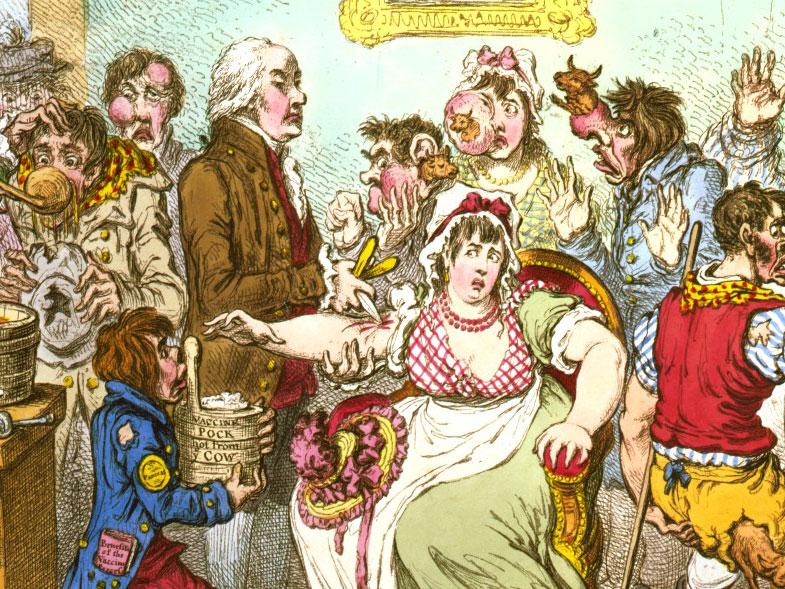Vaccines should be called 'equines' to reflect true origin, says expert
The word 'vaccine' comes from the Latin for cow, vacca, but the treatment may have more to do with horses

Your support helps us to tell the story
From reproductive rights to climate change to Big Tech, The Independent is on the ground when the story is developing. Whether it's investigating the financials of Elon Musk's pro-Trump PAC or producing our latest documentary, 'The A Word', which shines a light on the American women fighting for reproductive rights, we know how important it is to parse out the facts from the messaging.
At such a critical moment in US history, we need reporters on the ground. Your donation allows us to keep sending journalists to speak to both sides of the story.
The Independent is trusted by Americans across the entire political spectrum. And unlike many other quality news outlets, we choose not to lock Americans out of our reporting and analysis with paywalls. We believe quality journalism should be available to everyone, paid for by those who can afford it.
Your support makes all the difference.The invention of vaccines was one of science’s greatest ever breakthroughs, saving the lives of countless millions of people over the past 200 years.
But the name may actually be a misnoma. Vaccine comes from the Latin for cow, vacca, as Dr Edward Jenner is famously said to have used the cowpox virus to inoculate an eight-year-old boy, his gardener's son, against deadly smallpox in one of the most ethically dubious, but successful, experiments in history.
However, a new article in the journal Lancet Infectious Diseases suggests that the smallpox vaccine might actually have come from horses, not cows, which would mean we should perhaps be talking about ‘equination’ and ‘equines’.
Its author, Dr Clarissa Damaso, of the Federal University of Rio de Janeiro in Brazil, said smallpox vaccines were propagated from existing stocks but none of those that survive today and have been tested contain cowpox.
Instead, they contain what is known as vaccinia virus, which is believed to have come from horsepox and which could not have been derived from cowpox.
Dr Damaso said it was possible Dr Jenner had also used horsepox virus and that this had become the standard form of treatment.
“This is the 18th century. They didn’t know what was causing the disease and they even didn’t know that viruses existed at the time,” she told The Independent.
“The cowpox experiment with the boy is the one all the books referred to and that was the famous experiment. It doesn’t mean he didn’t do other experiments.
“I think if he had used cowpox then we should have some vaccine today made of cowpox virus.
“All the vaccine [genetically] sequenced today doesn’t have cowpox in it.”
She said that this view was widely shared by smallpox vaccine researchers and some supported the idea of changing the name to reflect its true origin.
"Maybe we should have ‘equines’ instead of vaccines or something like that,” Dr Damaso said.
Dr Jenner believed human smallpox came from cowpox and that this came from horsepox.
In her ‘historical review’ in Lancet Infectious Disease, she said that the evolutionary relationships of the different smallpox vaccine strains “remain obscure, because most strains and clonal variants have not yet been completely sequenced”.
She added: “It is reasonable to believe not only that cowpox virus was not used as a smallpox vaccine in the 19th century, but that it might have never been used at all.
“Many questions still persist, and analysis of full-genome sequences of ancient vaccine strains would help unravel this fascinating medical mystery.”
Join our commenting forum
Join thought-provoking conversations, follow other Independent readers and see their replies
Comments